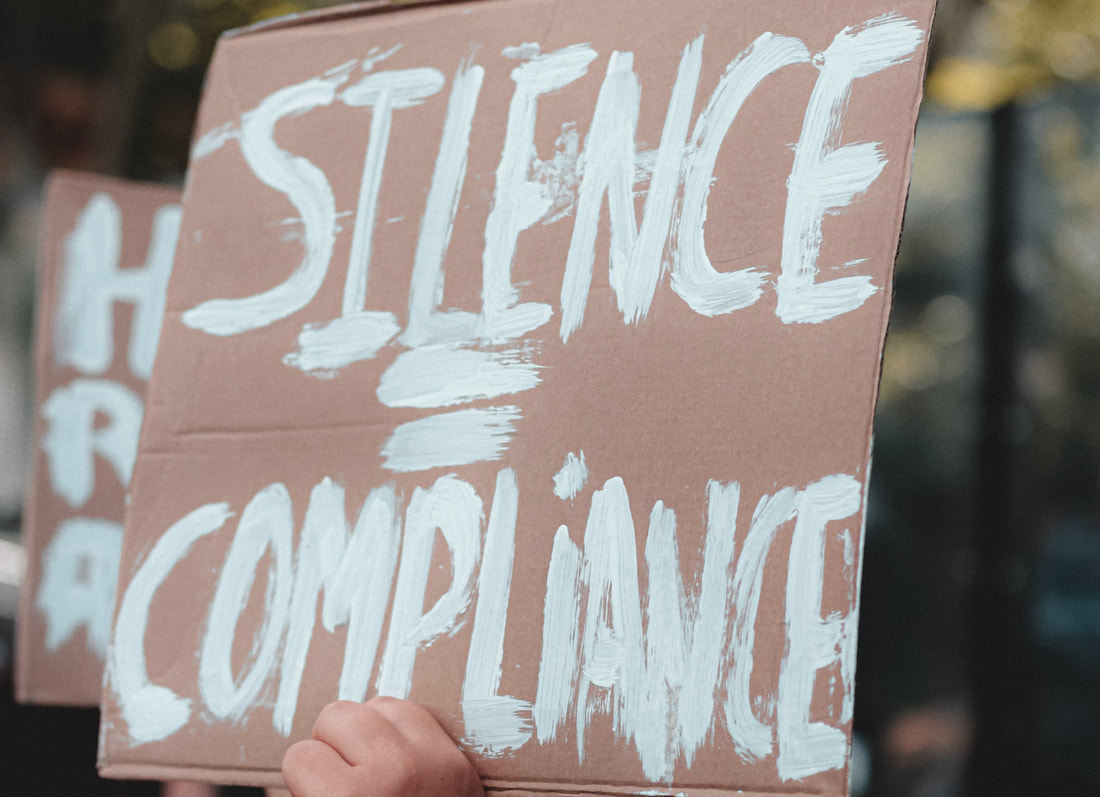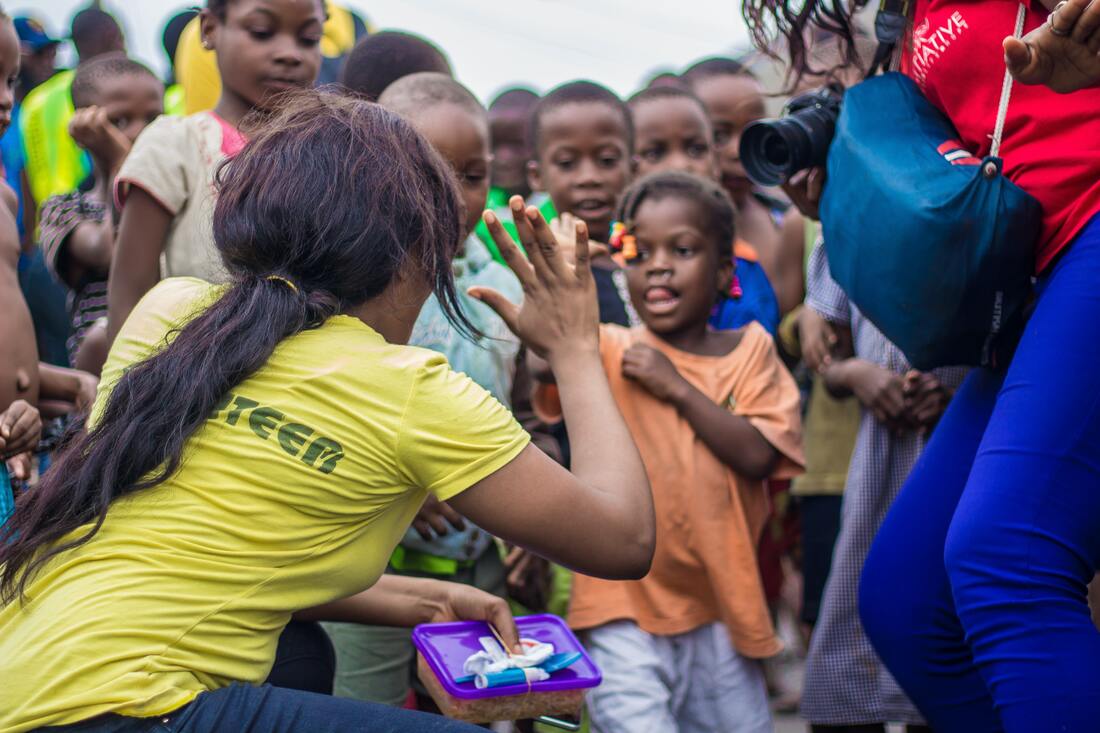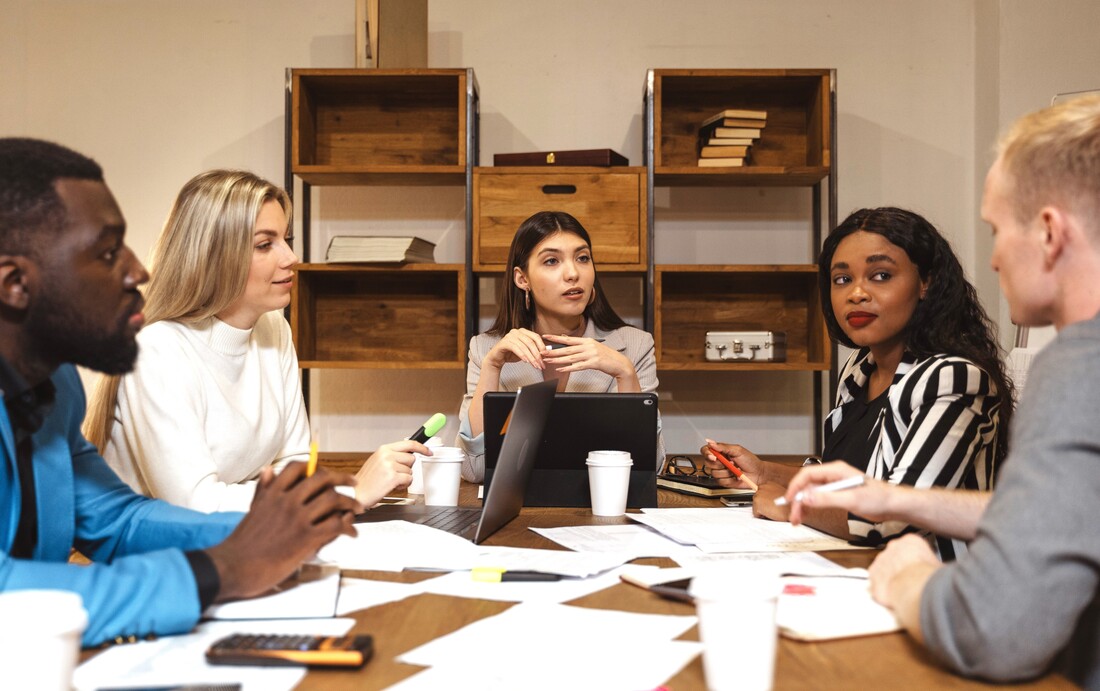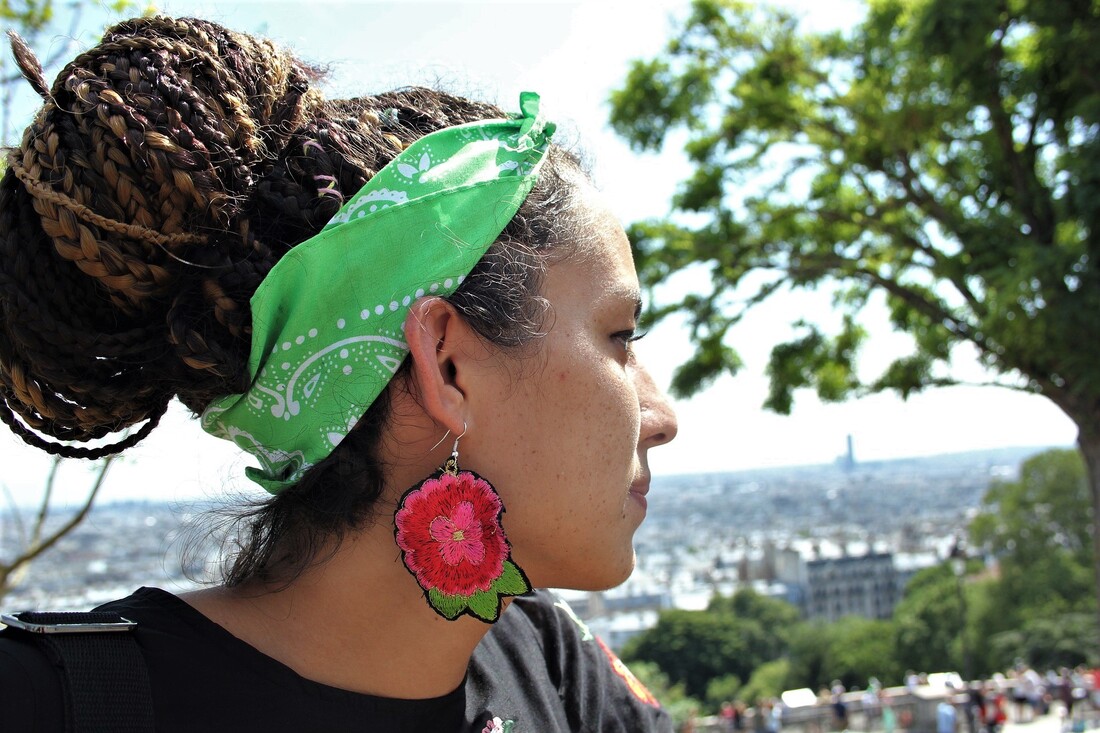|
‘The currency of real networking is not greed, but generosity.’ (Keith Ferrazzi) One of the skills in Action Learning is to distinguish between a presenter who is wrestling with a question from one who has become completely stuck. In the former case, it’s often most useful simply to sit with the presenter in silence while the question does its work. In the latter, the facilitator may offer the presenter an option of ‘peer-consultancy’, if it might help break the mental deadlock. In order to do this well, however, and to ensure that ownership and agency remain with the presenter, the facilitator can follow a specific sequence of interventions and process steps:
A few words of caution. First, beware of introducing the peer-consultancy approach without checking in with the presenter first. If the presenter is deep in thought, such a shift in approach may feel premature of patronising, as if inferring that they’re unable to work out a solution for themselves. Second, beware of any formal or informal (e.g. age, gender, race) hierarchical dynamics in a group. Presenters may feel that they ought to respond to all insights out of respect for those who shared them, or obliged to agree with ideas proposed by someone they regard as an authority figure.
8 Comments
‘Two roads diverged in a wood, and I — I took the one less travelled by.’ (Robert Frost) It was in a dark, cigarette smoke-filled pub one night. The trade union reps sat behind a long wooden table, cluttered with half-full beer glasses. We about-to-graduate apprentices sat opposite, waiting to be called forward. (It was in the days of closed shop when qualified trades people could only be employed if they held union membership). At the time, I supported the value of trade unions in principle, yet felt dismayed and disillusioned by the corruption that this source of power had created. I noticed my colleagues often lived in fear of the union rather than represented by it. If you said or did something that challenged or upset union leaders, you risked losing your union card and therefore your job. One by one, my fellow apprentices stepped up to the table. ‘Raise your right hand. Do you swear to abide by the rules of the trade union?’ ‘Yes.’ ‘OK, go and sit down.' My turn came. ‘Do you swear…?’ ‘No’, I replied. ‘I have no idea what the rules of the trade union are.’ The panel looked bemused. ‘You really want to read the whole rule book before you agree?’ ‘Yes’, I replied. The shop steward thrust a copy into my hands then ejected me forcefully from the meeting. ‘Wait outside until we call you back in.’ I skimmed through the book then, on return, insisted I was exempted from default political party contributions, as was my right according to the rules. They looked intensely frustrated but had to consent. I don’t think such encounters changed the trade union, but they did change me. Some months later, I was sent on a 2-week residential apprentices' programme that aimed to stimulate personal leadership qualities. I challenged the senior managers there with whom, providentially, I had opportunity to speak. ‘Why invest in this programme when the prevailing management behaviour in the workplace is so autocratic? We need to change culture, not just individuals’. They looked deeply uncomfortable yet I held my ground. (They had, after all, encouraged personal leadership). At the formal dinner of the final evening, they invited me to sit at the top table alongside the most senior leader for that region. I was learning to navigate my way through power structures and systems and to exercise personal and political agency. [See also: Pivotal points] ‘Action Learning aims to shake you out of the cage of your current thinking.’ (Pedler & Boutall) Action Learning: a method by which someone receives stretching, coaching-type questions from a small group of peers. The aim is to resolve a pressing challenge, a real-life/work issue that has left the person perplexed or stuck. The idea is to leave with actions, practical steps that will help to move things forward. Yet what gets a person stuck in the first place? If it’s a complex challenge, such as that of navigating the intricacies of diverse human relationships, we may become inadvertently caged by our own assumptions. Gareth Morgan commented that ‘people have a knack for getting trapped in webs of their own creation.’ If we don’t know what assumptions we’re making, everything may seem self-evident to us. This is where Action Learning and coaching really can help. If we can engender a spirit of curiosity within ourselves and invite challenging questions from different others, we may discover a door emerging in our previously-unseen cage, experience the agency to push it wide open and step outside to embrace fresh possibilities. It could just change...everything. 'There is no act too small, no act too bold. The history of social change is the history of millions of actions, small and large, coming together at critical points to create a power that governments cannot suppress.' (Howard Zinn) At the heart of coaching generally lays a desire and opportunity for impact and change, a goal that may seem obvious, but one that raises important questions. As coaches aspiring to make a difference in the world, we can find ourselves navigating complex dilemmas. When we work with agents of change in, say, NGOs, charities, churches or public sector organizations, we often seek to empower individuals, teams, and organizations to be resourceful and effective in achieving transformation. One challenge we may encounter is determining the coaching agenda. A Western coaching ethic advocates for giving the client complete control over the agenda, focusing on their chosen goals and boundaries. While this approach seems straightforward, our intention of promoting social change may lead us to contemplate how much influence we should exert on the client’s journey. What if the client's solutions seem unethical, ineffective, or could pose risks to broader social development? Furthermore, when working in diverse cultural contexts, we need to be mindful of differing perspectives on individual autonomy. In some Eastern and Southern cultures, the concept of setting individual goals might not resonate the same way it does in the West. People in these cultures often prioritize the wishes and expectations of a wider group, whether family, team or community, before their own hopes and ambitions. We could risk inadvertently imposing our own cultural values onto the client. The solution often lays in recognizing the significance of context and building a strong and trusting relationship with the client. By understanding the dynamics of power, language and agendas that may emerge between us, we can gain insight into the issues at hand and potential solutions. We become allies, working together to achieve meaningful impact. A critically-reflective process allows us to adapt our coaching practice on route and to challenge our assumptions as we learn and grow. ‘If I had only one hour to save the world, I would spend fifty-five minutes defining the problem, and only five minutes finding the solution.’ (Albert Einstein) Action Learning is a powerful way to explore an issue, formulate a solution and enable personal agency to act and influence change. It can also be used effectively to enable a group with shared interests or concerns to work on and address an issue together. The first step in this latter approach often entails helping a group to formulate its own question or hypothesis at the outset, a bit like when conducting action research, to establish appropriate focus and boundaries. As a facilitator, we can invite the group to reflect on criteria and wider considerations as it performs this initial task. Here are some examples: a. In relation to this issue, who are they key stakeholders in the system? b. Do we have the right people in the room to address this issue? c. Is it feasible to make useful progress on the issue in the time we have available? d. Are there any ethical, intersectional, reflexive or relational issues we should pay attention to in how we do this? Sometimes, I notice that one or more participants may have an intuitive awareness, a feeling or a hunch that something is, say, anxiety-provoking, challenging or stuck in their system, yet they may struggle to articulate it. In that case, I may invite them to, for instance, draw a picture, tell a story or enact a stance to help surface whatever issues lay beneath for them. Then, we continue the process (above) to reach clarity and agreement, as a group, before we move forward. ‘There’s nothing more dangerous than a resourceful idiot.’ (Scott Adams) 15 minutes before I was due to lead an online change leadership workshop in Germany, I stepped outside briefly for a breath of fresh air. I wanted to clear my head, focus and pray. Then…oh no, I heard a gentle click behind me and discovered, to my alarm, that I couldn’t open the door without a key. It hung tantalisingly on the inside and I could see my mobile phone staring at me blankly from the table. Aha, I thought. I will ask my hosts to let me in. Oh, they were out. Mild feelings of panic rising, I rushed to a neighbour. Thank God they were in, could understand my Englisch-Deutsch, had the hosts’ number and could call. Now, with just 2 minutes to go, my host appeared and saved the day. It was a timely reminder that sudden change can come from anywhere, unexpectedly and often from left field. It was also a helpful reminder that leadership, resilience and agency aren’t simply inward, intra-personal qualities or strengths. Our ability to handle the impacts of changes and transitions often emerges from an outward-facing resourcefulness, looking outside of ourselves openly (and, for me, prayerfully) for people and-or other resources who can co-create and co-enable a solution with us…or – if no solution is possible – sit with us in the midst of discomfort, disappointment or pain. ‘Your choice point is the space you're in right before you make a decision.’ (Martha Tesema) You are choosing to read this blog – you could have chosen to do something else instead. You are choosing to read it now – you could have chosen to read it at a different time. In fact, according to psychological choice theory, everything you do is a choice. You’re not always aware of it and it won’t always feel like it. The implications and consequences of choosing one course of action over another can sometimes be so different and so stark that it can feel to, to all intents and purposes, as if there is no choice. Yet you are still likely to choose the action that, for instance, aligns most closely with your values; or has the greatest perceived benefits; or has the least risks or detrimental effects. The implications of this theory are radical and extreme. If every action you take represents a choice, and if you can grow in awareness of the choices you are making at each moment, a vast array of possibilities opens up to you. As you approach any decision, it will be like reaching a road junction, with always at least 2 options available to you. You will no longer be trapped or driven entirely by circumstances. You can exercise greater freedom and personal agency. You can learn to navigate adaptively through choices, like tacking into the wind on a sailboat. You can become more creative and innovative. You can visit places, reach destinations, that you never dreamed imaginable. There is a flip side. If you really are free to choose, you’re also responsible for your every action. It could feel easier to tell yourself that you have no choice – especially since you can’t anticipate every potential ripple effect. It would relieve you of the burden of accountability. You could also feel quite overwhelmed by the dread of having to make choices at every moment in time, in every situation. It could feel like existentialist Jean-Paul Sartre’s nightmare, ‘condemned to be free’. You may try to alleviate the anxiety by telling yourself that you’re a product of your background, upbringing, culture or circumstances. Then you could stop over-thinking, over-analysing, and get on with your life. So, how to handle this paradox? How to create the liberating freedom of expanding one’s sense and reality of choice whilst also to acknowledge the ethical and practical responsibilities it carries with it? First: awareness. Here’s a simple exercise. Write down a paragraph of no more than 100 words that describes the last meeting you had with a colleague. Now, underline every word that represents a choice point in what happened. If you do this rigorously enough, you will be amazed at how much of the text is highlighted. Now the stretch, a thought experiment: jot down at least 2 different choices you could have made at each choice point. Try to be creative and courageous as you do this. Second: responsibility. To build on this exercise, jot down a list of key criteria that will help you to ensure focus, priorities and boundaries to your decisions and actions. Here are some examples: ‘make best use of my time; achieve my career goals; develop the team’s potential; improve quality of relationships; create best value for stakeholders’. These criteria reflect and represent your values. Finally, test the actual choices you made, and the hypothetical choices you could have made, against these criteria to take note of what you could have done differently, what you could do next time and what lines you will not cross. Now – it’s your choice: given what you know now, what will you do with it? (See also: Choose; Choice; Agents of Change) ‘The opportunity to make effective personal choices is highly unequal.’ (Robert A. Dahl - After the Revolution) New Years’ Resolutions. A time and practice in Western cultures when some of the more reflective or impulsive among us will commit to do something new. It could be, for instance, a new relationship, a new job, a new home, a new diet or a new fitness routine. For many people, very soon after having made a decision, the resolve will dissolve and be lost in the mists of time. Yet central to this idea of resolution is the notion of personal choice and, with it, the principle that I can succeed in achieving what I choose – if I’m willing to do whatever it takes. I often create (prayerfully) a list of key aspirations at the start of each year, then put practical steps in place so that, all things being equal, I will be able to look back at the end of that year and see that I have fulfilled them. The goals are intentionally inspiring and stretching. They are, with God’s help, within my grasp and, therefore, possible. On the whole, this discipline works by ensuring focus, parameters and accountability. It also centres on people and things that are genuinely important to me and, thereby, taps into values, motivation and determination. We can think of this choosing-acting-influencing phenomenon as exercising personal agency. Shaun Gallagher describes this as, ‘the sense that I am the one who is causing or generating an action’. ‘I can choose’ is a profound existential, psychological and political statement and stance. It means I can break out beyond the apparent default of my circumstances. We hold the potential to be catalysts of real change in the world, within ourselves as well as in broader relationships and situations – and this brings opportunity and responsibility. I can choose and you can choose. I think vividly of Jasmin in the Philippines, a poor woman among the poor who chooses to follow Jesus’ call and example, whatever the cost. Rather than allowing herself to be limited by her circumstances or by expediency, she exercises radical personal agency and transforms everyone and everything in her path. Malala Yousafzai and Greta Thunberg are famous examples of women too who take personal choice, action and influence seriously – and, similarly, at considerable personal risk. There are wider dimensions. A person's sense and scope of agency are affected by structural factors that transcend the individual, e.g. social status; wealth; education; gender; ethnicity; culture. Mustafa Emirbayer and Ann Mische observed that a person’s lived experience limits what possible alternatives or future scenarios he or she is able to imagine. Paulo Freire proposed, on a similar basis, that critical consciousness (‘conscientisation’) is a necessary condition for people to exercise freer choices and agency for change. I worked with a client from Myanmar and asked her what she dreamed of. She looked at me blankly then responded that she was unable to conceive of a different reality to the one that she had lived until now. She felt crushed by the mental and practical constraints of living as an ethnic minority in a country dominated by a military dictatorship. The impact of unequal and unjust social-political power is not a fixed determinant of agency – but the stark psychological and tangible inequalities of choice and opportunity it engenders are significant. Other influences include personal confidence, competence and capacity. If a person operates psychologically and relationally from a secure base with trust and support, he or she is more likely to choose to take a positive risk. If, conversely, someone is and-or feels alone and has experienced or anticipates unfair discrimination, negative evaluation or other painful consequences, to act can feel hazardous – especially if the stakes are high. Agency can demand energy, courage and resilience. A person may not (yet) feel ready, willing or able to take that step. If a client is unaware of or avoiding personal agency, William Glasser suggests stimulating his or her sense of reality, responsibility and relationship in order to enable more life-giving choices. If stuck in a pattern of apathy or passivity, John Blakey and Ian Day propose offering high challenge with high support. If we risk inadvertently colluding with or disempowering a client, Reg and Madge Batten advise focusing attention on what the person can do for him- or herself and, only after that, what we could do by agreement with them, or on their behalf. Viktor Frankl, victim of Nazi persecution concluded that, fundamentally: ‘The one thing you can’t take away from me is the way I choose to respond.’ In our personal, social and political lives, we can see how a person’s choices, actions and influence are affected by a diverse range of factors. These include the privileges a person may hold (or not) and the opportunities he or she has benefited from by birth, background or context. Jesus – help me choose this year to exercise my own agency for the life and liberation of others. We can be hope. (Would you like to discover how to exercise greater personal agency? Get in touch!) ‘It’s about moving on in some way from point A, not necessarily to point B or C, but to some position beyond A.’ (Bill Rosseter) I love Rosseter’s open definition of the fundamental goals of learning, development and education. We could argue this principle lays at the heart of leadership, coaching, training and facilitation too. After all, an axiom of Western thought is the unquestioned value of personal autonomy and agency. Applied more broadly in organisation development (OD), we can attach the same idea to teams, groups and organisations. It points towards an underlying and oft-implicit intention, trajectory and destination: from dependence towards ever-increasing independence: to stand on one’s own two feet. And it’s not just theoretical. If, like me, you were born into a Western culture; perhaps especially into a UK proud-of-its-island-mentality culture, notice the connotations and feelings we associate with the words themselves: dependence vs independence. Dependence can sound and feel (negatively) weak, vulnerable and needy. Independence, by contrast, can sound and feel (positively) strong, resilient and resourceful. We see this language played out increasingly on the global-geopolitical stage too; with independence often being associated (desirably) with power, control and self-determination. So, what could this look like in leadership, coaching, training and facilitation? Reg and Madge Batten, development pioneers against a backdrop of colonialism in Africa, proposed three distinctive forms of intervention that, when used well, can support a useful journey of empowerment. In paraphrase, there are things we can: (a) do for others; (b) enable others to do for themselves; and (c) leave others to do without us. Some critical questions this spectrum begs are: what is most facilitative (that is, enabling) for this person (or team, group, organisation) in this situation, at this time - and who decides? There are further considerations too. The Battens (above) coined an important qualifying phrase, qualitative autonomy, stating: ‘We are interested not only in the fact of independence but also in its quality.’ Independence is not a values-neutral end in itself and, therefore, needs to be balanced with broader ethics and values in order to ensure holistic change. It is possible, for instance, to imagine a form of independence that is self-centric and limiting, undermining or exploitative of others; lacking any sense of altruism, mutuality-synergy or healthy interdependence; and, ultimately, self-defeating. So, how do you work with people, teams or organisations to learn, develop and grow? How far do you take your, and their, cultural backgrounds, beliefs and values into account? How do you help ensure that wider people, relationships and systems are kept in view? |
Nick WrightI'm a psychological coach, trainer and OD consultant. Curious to discover how can I help you? Get in touch! Like what you read? Simply enter your email address below to receive regular blog updates!
|












 RSS Feed
RSS Feed